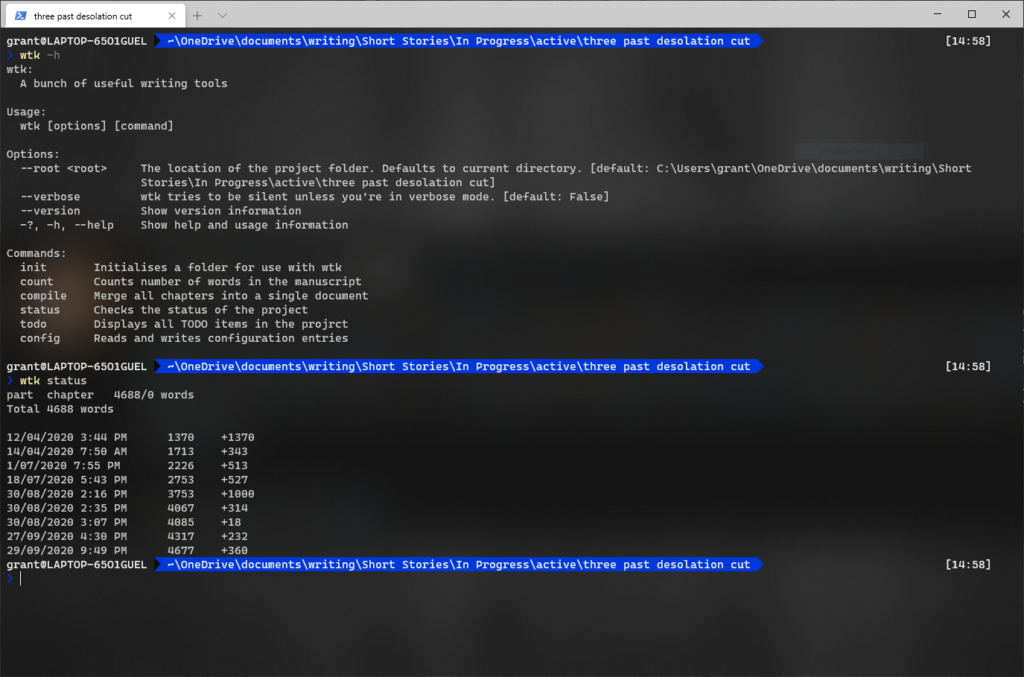Back at the start of the year I realised something. My writing tools weren’t working for me.
I’ve used Scrivener for years. I’ve written a couple of novels and any number of short stories with it. But there was something about it that just didn’t quite suit me, and it took a while to figure out what it was.
I’m a software developer. I’ve been cranking out code since Apple II days. I grew up with green text on a black background. I don’t get to code as much these days. Mostly I draw boxes and arrows on whiteboards, communicating the plan to the people who are really going to do the work. But every now and then I still get the chance to crank out some code. When I do, I’m using tools I’ve known for years: Visual Studio, VS Code, Notepad++ and the command line. I know these tools back to front. Yeah, I’m one of those guys who still does all their Git work at the command line instead of using GUI tools. So I started wondering if I could use those same tools for fiction.
Visual Studio is an absolute monster of a product and it’s still the best Integrated Development Environment you’ll find. Visual Studio Code is Visual Studio’s little brother. It’s far smaller, takes less space to install, runs faster and works on Windows, Linux and OS X. And it’s free. If all you want is a solid text editor, VS Code will do the job. But it’s also got a very rich collection of plugins and extensions. Did I mention it’s free? Because it’s free.
So in January I started working on fresh stories using VS Code instead of Scrivener. And something just clicked.
I still don’t know exactly what it was. Perhaps because this was a tool I used every day at work, there was no ceremony to it. Perhaps it had got to the point where watching the Scrivener loading screen was telling my brain ‘Behold! The Genius is Preparing to Write!’, which immediately caused by imposter syndrome to kick in and my imagination to curl up in the corner. But when VS Code started the message was ‘eh, time to go to work’. Whatever the reasons, as soon as I switched to Code, words started flowing faster than they had before.
But great as VS Code was for kickstarting my writing, there were a few pieces missing. If I split a story into a separate file for each scene it was hard to get a total word count. I wanted to add target word counts for scenes and chapters too, and perhaps a way to compile all these pieces into a completed manuscript. I couldn’t find a plugin that did everything I needed in the way I wanted.
So I built something.
wtk is ‘Writer’s Toolkit’. It’s a minimal collection of tools designed to help writers who like to work with words the same way they work with source code. Wtk is opinionated, and designed to match the way I work. It’s open source and available here.
Writing fiction using programmer’s tools is definitely not for everyone. And even if you’re the kind of person who’s happier with vi than Word, wtk might not be your cup of tea. But if you want to use it, go for it. Hopefully it can help other people as much as it has helped me.

